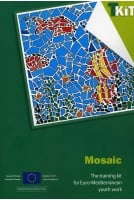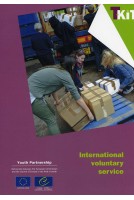



Finding a way through the labyrinth of funding has become yet another skill which volunteer and professional youth workers need to have. All too often youth workers are their own fund-raisers and are given little assistance by their boards of management.Ambitious plans often come with little financial provision except "Good luck with the fund-raising!" We hope the T-Kit will narrow that gap and provide a comprehensive overview of funding sources. It has been divided into two main parts, one on funding sources and one on financial management. A third part contains a glossary and recommendations for further reading, on both paper and the Internet. Throughout the text you will find hints on issues which we found relevant. Whenever possible, we also tried to find some good real-life examples of the issues discussed in the text.
lntroduction
Part l - Sources of funding
Section 1 - Own resources, revenues and fund-raising from individuals
Providing services - your hidden financial potential, Fund-raising classics, Publications - a difficult tool, Mail campaigns - European diversity, Payroll giving - an interesting option in some countries
Section 2 - Public sources
Funding at local, regional and national levels, European Union funding - transnational European funds, The YOUTH programme, The Leonardo Da Vinci programme, The Socrates programme, The European Union structural funds, European Union funding for pre-accession and third countries, Council of Europe funding for youth activities, The European Youth Foundation, The Solidarity Fund for Youth Mobility, Study sessions at the European Youth Centres
Section 3 - Independent funders
Foundations, Types of foundation in Europe, Foundations in Europe today - common characteristics, Corporate citizenship programmes, Individual philanthropists
Part ll - Financial management
Section 4 - What do you need the funding for?
Mission, strategy, sustainability, The Funding Encoder
Section 5 - How to get at the funding
Preparing a budget, Translating your project into the funder's language, Approaching (independent) funders, Application forms, Understand your (independent) funder, Matching funds and co-funding
Section 6 - Spending the money
Knowing your obligations - the agreement, Agreements with project partners, Dealing with (financial) crisis, Ownership, Handling cash, Spending plan, Monitoring the project and maintaining relations
Section 7 - Accounting for it
A quick overview, Reporting obligations, What happens to my report?, Ten good reasons for producing a good report
Appendices

















Finding a way through the labyrinth of funding has become yet another skill which volunteer and professional youth workers need to have. All too often youth workers are their own fund-raisers and are given little assistance by their boards of management.Ambitious plans often come with little financial provision except "Good luck with the fund-raising!" We hope the T-Kit will narrow that gap and provide a comprehensive overview of funding sources. It has been divided into two main parts, one on funding sources and one on financial management. A third part contains a glossary and recommendations for further reading, on both paper and the Internet. Throughout the text you will find hints on issues which we found relevant. Whenever possible, we also tried to find some good real-life examples of the issues discussed in the text.
Please note that in accordance with our terms & conditions, PDF/epubs may only be purchased by private individuals.
